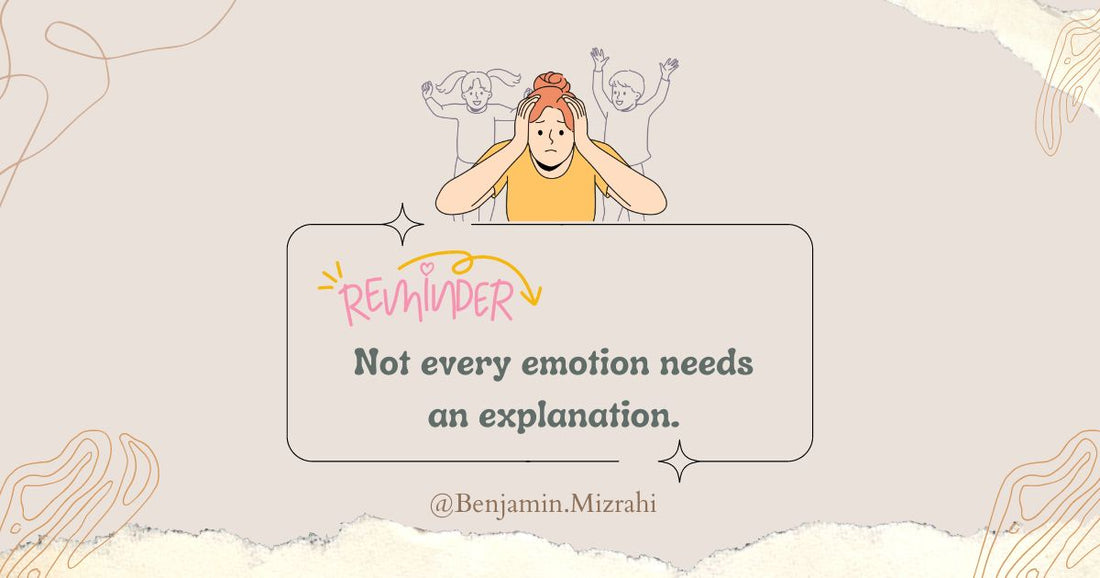
Not Every Emotion Needs an Explanation
Share
A gentle reminder:
Not every emotion needs an explanation.
It seems fitting after two days of sharing scripts to share this reminder.
Words are helpful and if we are consciously engaging with our child and ourselves, scripts can help us understand the framework from which we want to parent and shift our mindset.
And yet, words can also be our crutches.
Words can be what we use to prevent us from engaging with what is happening in the present moment.
Words can keep our anxiety at bay.
If we are predominantly left-brained, words and logic are what feels comfortable and safe.
We want to understand, rationalize, analyze, and get to the root of our child’s emotions.
Naming the emotion.
Validating the emotion.
Trying to help our child uncover the root of the emotion.
All very valuable!
But we may miss the opportunity to teach our child another valuable lesson: emotions are not a part of us, we can experience them, notice them, and let them go.
While this language is too sophisticated for a toddler, the goal is integration.
Integrate the left and the right brain.
As parents this means that our presence is more important than any words we share with our child.
Empathy is communicated by our presence and body language, not only our words.
When your child is experiencing an emotion, pause and notice:
How is your breathing?
What facial expressions are you communicating?
What are your body movements communicating?
Worth noting: if we are predominantly right brained and tend to get stuck in our emotions or our child’s emotions, integrating the left-brain or logic and reason is the goal.
What about you, are you predominantly left ⬅ or right ➡ brained?
Coach Benjamin Mizrahi. Educator. Learning Specialist. Family Coach. Father. Husband.
More articles on Mr Mizrahi's Blog - Benjamin Mizrahi
